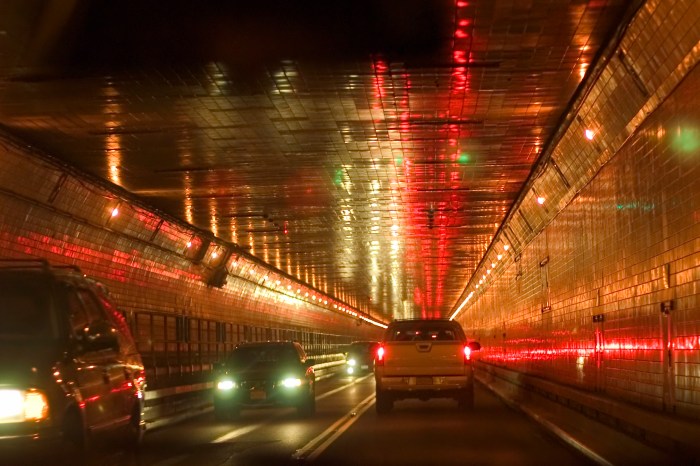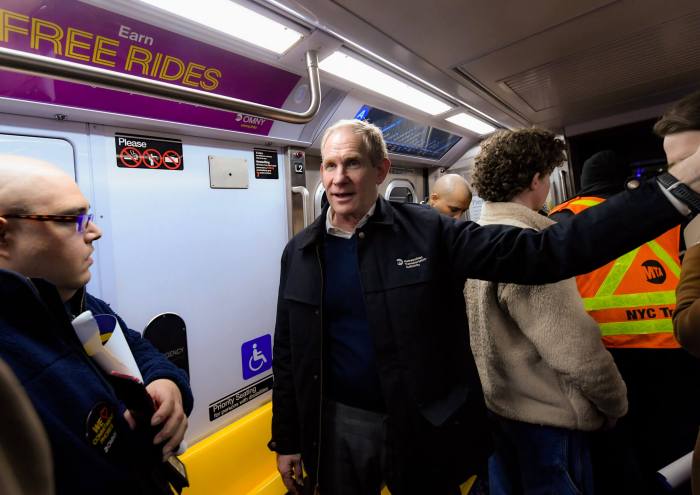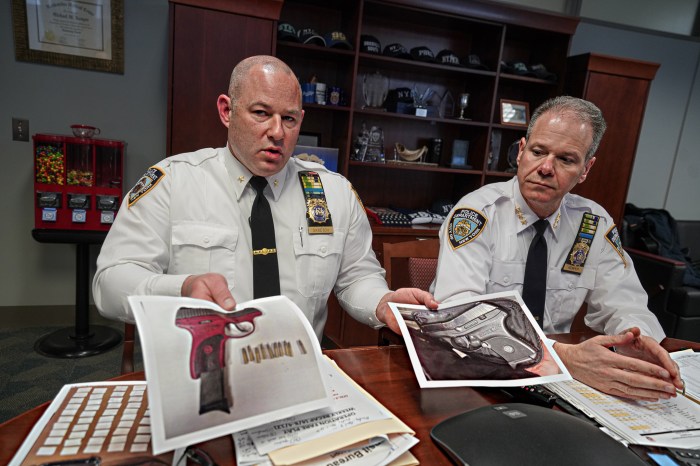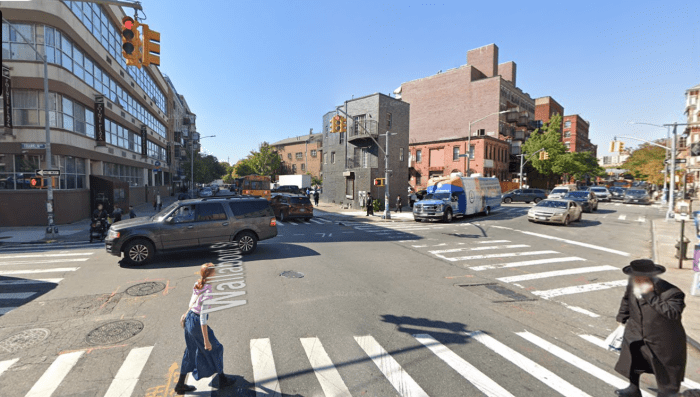The City Council is considering three bills that would remake the commuter van industry, officials said during a hearing on Thursday.
The vans often work in transit-starved areas in Brooklyn and Queens. Some work legally, others illegally. Many connect immigrant communities via routes that are quicker and cheaper than taking the subway.
“Commuter vans provide true affordable transportation to New Yorkers, mostly in the outer boroughs, but also in Manhattan,” said Taxi and Limousine Commissioner Meera Joshi during the hearing.
“This is especially true in neighborhoods that have less access to public transit, where commuter vans allow passengers to share rides at minimal costs — as little as two dollars.”
For instance, vans connect riders between Manhattan’s Chinatown and Flushing in 35 minutes, when it would be a 70-minute subway ride, she said.
Almost 600 vans are working legally in the city.
The proposed City Council legislation includes a study of safety issues in the industry that would suspend new licenses until the analysis was complete — such as data on safety violations and illegal vans.
Other bills would let vans operate on routes rather than just do prearranged trips, and raise the civil penalties on vans not licensed by the city.
A federal judge recently ruled that the TLC’s seizing of cars and vans it believed were offering illegal services was unconstitutional.
Commissioner Joshi saidthe agency’s officers have stopped seizing vehicles since then, and drivers are receiving criminal misdemeanor summonses instead.
“We are going to work with the district attorney’s office,” she said. “The litigation is pending. A lot of these issues are not resolved yet.”
The TLC also said it does not believe a study of the commuter van industry is necessary, because the agency gathered a lot of information for a pilot program it recently did. Vans were given decals that showed both passengers and law-enforcement whether they were licensed.

















